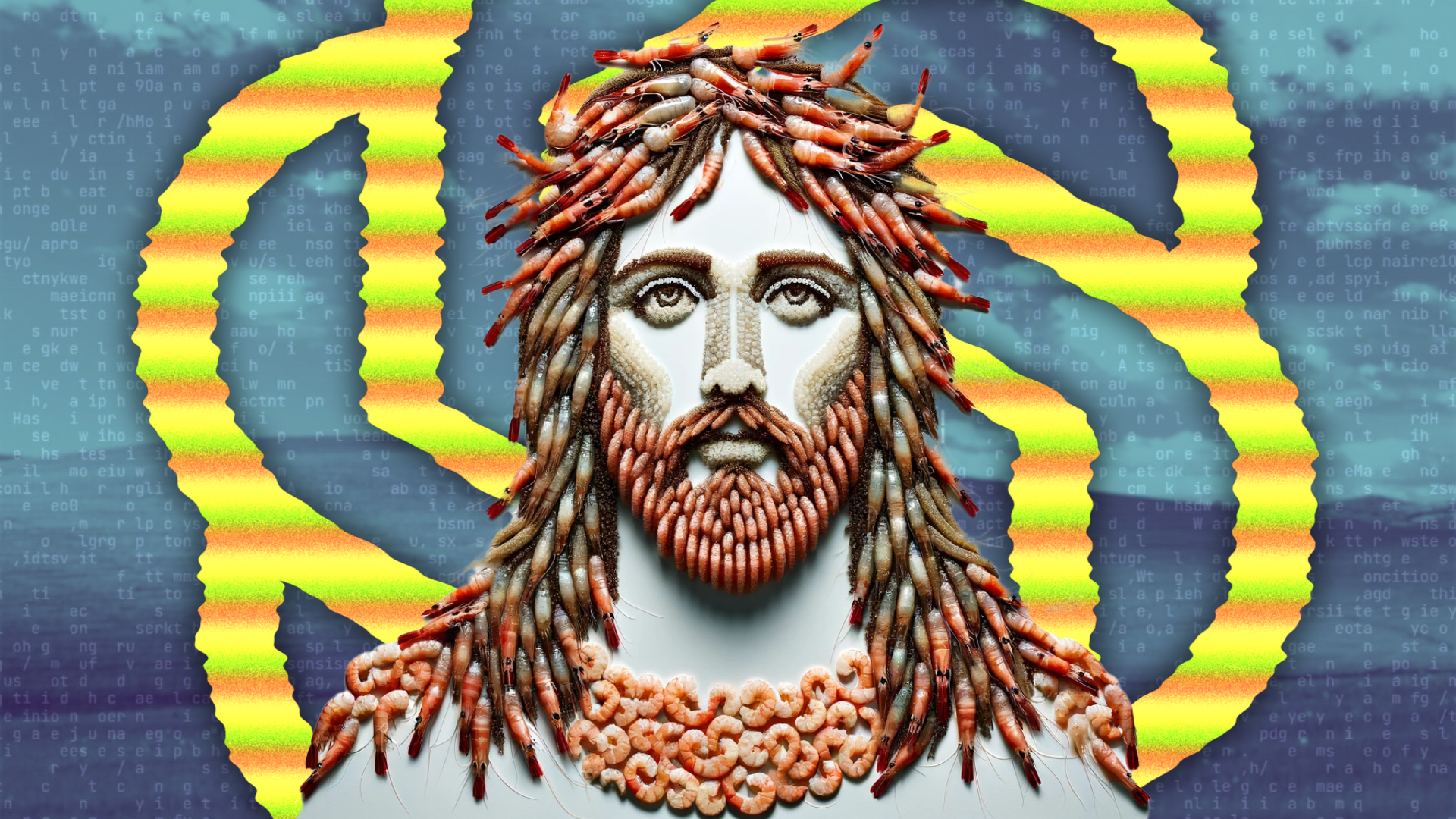Shrimp Jesus!?… Wait, what!?
As a proper millennial, I have yet to meet an Internet rabbit hole that didn’t spark my curiosity. So, when my colleague Scot Pansing introduced me to this horror of an AI-generated character, I just had to learn more about it.
As it turns out, Shrimp Jesus refers to a massive collection of AI-generated images that blend Jesus with shrimp and have gone viral (and probably still are) on every scammer’s favorite social platform, Facebook. These images, in turn, are sometimes linked to shady websites to prey on unsuspecting folks and scam them.
This kind of AI-generated content is like algorithm crack, as scammers sure know how to game a gullible audience by appealing to their faith or values, asking them to comment “Amen!” on each of these images or if they support the Army (?) which, in turn, helps distribute them to even more people, which in turn comment “Amen!” and you get the idea: soon you find yourself with more shrimp references than “Forrest Gump: Director’s Cut”
While it’s tempting to laugh at the bizarreness of the whole thing and chalk it up to “boomers being boomers on social media,” the truth is that this is what the future of the Internet looks like. It’s already here: engagement draws eyes to ads. Ads bring money for our precious tech-bros to buy another Doomsday Island.
It is clear that -unless pressured by the actual client they serve, brands, or government regulation- most platforms will continue promoting this kind of content. Meta did promise they will begin labeling AI images, though, so we shall see about that.

As part of the content creation industry, it’s our responsibility to strive for content that educates as much as it entertains or tries to get folks to follow a call to action. But it’s not just that; it’s also important to adhere to an ethical framework, ensuring that we contribute positively and create meaningful connections.
Will this stop the onslaught of content? Hell no. But it’s a start, and apart from pressuring lawmakers to stop the culture wars and focus on passing legislation that actually benefits their constituents (lol, can you imagine?), this is the best we can do.
Like the meme says, “It ain’t much, but it’s honest work.”
Interested in learning more about Shrimp Jesus?
- Check out Stanford Internet Observatory: How Spammers and Scammers Leverage AI-Generated Images on Facebook for Audience Growth
- 404 Media: Facebook’s Algorithm Is Boosting AI Spam That Links to AI-Generated, Ad-Laden Click Farms
